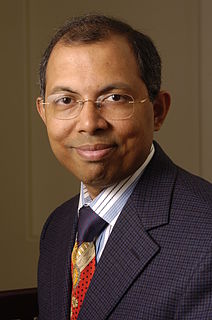A Quote by Antony Flew
Although I was once sharply critical of the argument to design, I have since come to see that, when correctly formatted, this argument constitutes a persuasive case for the existence of God.
Related Quotes
Here is the cosmological proof of the existence of God - the design argument of Paley - updated and refurbished. The fine tuning of the universe provides prima facie evidence of deistic design. Take your choice: blind chance that requires multitudes of universes or design that requires only one.... Many scientists, when they admit their views, incline toward the teleological or design argument.
The assumed instinctive belief in God has been used by many persons as an argument for his existence. But this is a rash argument, as we should thus be compelled to believe in the existence of many cruel and malignant spirits, only a little more powerful than man; for the belief in them is far more general than in a beneficent deity.
For centuries the most powerful argument for God's existence from the physical world was the so-called argument from design: Living things are so beautiful and elegant and so apparently purposeful, they could only have been made by an intelligent designer. But [Charles] Darwin provided a simpler explanation. His way is a gradual, incremental improvement starting from very simple beginnings and working up step by tiny incremental step to more complexity, more elegance, more adaptive perfection.
If you and I are not having a dialogue, when you're having an argument, the reason the argument happen is because we are not listening to each other. Then, the argument comes in, but if we truly listen instead of hearing, argument will not happen. Then, we'll empathize, and then once the empathy kicks in, you will be much more inclining with my viewpoint and I'll be inclining with your viewpoint, and that's what is missing in organizations.
The argument for collectivism is simple if false; it is an immediate emotional argument. The argument for individualism is subtle and sophisticated; it is an indirect rational argument. And the emotional faculties are more highly developed in most men than the rational, paradoxically or especially even in those who regard themselves as intellectuals.
It may be something that future generations are more open to, but I am pretty confident that for the foreseeable future, using the argument of nondiscrimination, and "Let's get it right for the kids who are here right now," and giving them the best chance possible, is going to be a more persuasive argument.
A rationalist, as I use the word, is a man who attempts to reach decisions by argument and perhaps, in certain cases, by compromise, rather than by violence. He is a man who would rather be unsuccessful in convincing another man by argument than successful in crushing him by force, by intimidation and threats, or even by persuasive propaganda.








































